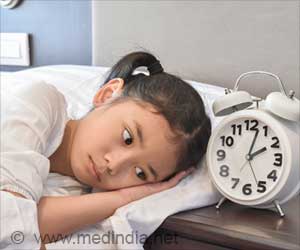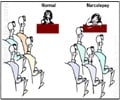Insomnia — Treatment
Prior to initiating any therapy for insomnia, the patient needs to be educated about
Hypnotics: These are sedatives that are given to induce sleep. The ideal dose is the lowest dose that adequately induces and maintains sleep. To prevent rebound insomnia, longer acting hypnotics are used. These medications should be used with caution in patients with suspected sleep apnea syndrome, hepatic, renal or pulmonary disease, pregnant women, and also in individuals with excessive alcohol consumption.
Commonly used hypnotics are:
a. Benzodiazepines like Furazepam and Triazolam.
b. Imidazopyridine medication Zolpidem, which is currently widely used due to its rapid onset of action, limited abuse potential, and low incidence of side effects.
c. Cyclopyrrolone medication like Zopiclone, which is a relatively safe drug to be used for the elderly.
Adverse effects of hypnotics occur more commonly in patients above 55 years of age in whom there can be increased daytime sleepiness and cognitive impairment.
Over-the-counter (OTC) hypnotics have antihistamine (which is used to treat cold) as the sedative ingredient that is less effective and has properties that can cause dizziness and urinary retention in the elderly.
Behavioral therapy – The basis of behavioral therapy is to help overcome phobias related to sleep, and to achieve ideal sleeping habits. Based on the type of insomnia and the associated history the appropriate therapy is chosen. The techniques employed are:
- Relaxation therapy effectively reduces mental or muscular tension in a person who has difficulty in initiating and maintaining sleep. Relaxation techniques like meditation help to relax the mind, and physical exercises help to relax the muscles.
- Sleep restriction therapy – This therapy imposes strict limits on the time of getting into bed and arising from the bed. This helps the person to tune his internal clock so that he can easily fall asleep and maintain good sleep.
- Stimulus control therapy is based upon the fact that the time spent in bed worrying about sleep is counterproductive to initiating sleep. The patient is advised to go to bed only when sleepy, and to associate bed with falling asleep quickly.
- Cognitive therapy – This therapy seeks to alter the negative emotions like fear and anxiety that are associated with sleep.
Melatonin
Melatonin is a hormone that is produced by the pineal gland. This hormone is secreted in the dark and helps to shift the time of sleep and so may be useful in the treatment of circadian rhythm sleep disorders, such as jet lag. However, questions have been raised as to its safety, particularly with regard to its effect on the cardiovascular system and reproduction.
Easy to follow methods
If you are suffering from insomnia then it may be related to some emotional upheaval. Try these simple techniques before thinking of popping in a sleeping pill.
- Take an evening walk for 30 to 40 minutes
- Have a glass of milk before hitting bed if it suits you
- If you have recently started drinking tea or coffee in the evening, you should stop it
- Keep your cell phone away at a distance
- Do deep breathing exercises for 10 minutes in bed – inhale for 4 seconds, hold for 7 seconds and exhale for 8 to 10 seconds
- Count backward from (300, 299, 298, ... to 1). Do it once or twice till you doze off to sleep.
























